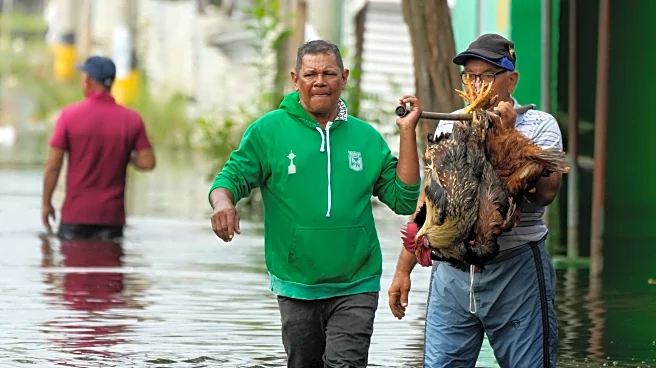Rapid Read • 7 min read
A rise in cases of Vibrio vulnificus, a bacteria that can cause 'flesh-eating' disease, has been reported in several U.S. coastal states, including Louisiana and North Carolina. The increase is attributed to climate change, with milder winters and hotter summers creating favorable conditions for the bacteria in warm seawater. Vibrio vulnificus can enter the body through open wounds or by consuming raw shellfish, leading to severe infections. Health departments in affected states have issued warnings, advising residents to take precautions when in contact with potentially contaminated water.
AD
The increase in Vibrio vulnificus cases underscores the broader impact of climate change on public health, particularly in coastal regions. As temperatures rise, the bacteria's habitat expands, posing a growing threat to communities. This situation highlights the need for enhanced public health strategies to address climate-related health risks. The economic implications are also significant, as healthcare systems may face increased burdens from treating these infections. Additionally, the tourism and seafood industries could be affected by public concerns over water safety and foodborne illnesses.
Health authorities are likely to continue monitoring Vibrio vulnificus cases and may implement more stringent safety guidelines for water activities and seafood consumption. Public education campaigns could be launched to inform residents and visitors about the risks and preventive measures. Researchers may also focus on developing better detection and treatment methods for Vibrio infections. Policymakers might consider integrating climate change adaptation strategies into public health planning to mitigate future risks.
AD
More Stories You Might Enjoy












